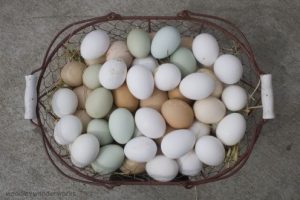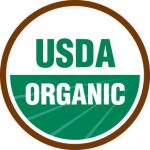Or, How To Decode Egg Carton Labels
Ponder the egg. This seed-like device not only helps animals continue their species, but it makes for good eating. Eggs are relatively healthy when cooked properly and in limited quantities. You should eat no more than about 4 eggs per week. A non-frying method of preparation is recommended, such as boiling, poaching or microwaving.
When you look at that egg carton in the store, do you know what any of those terms mean? Being able to read food labels is important for the healthy consumer. But too often, those terms can be misleading. Sometimes people think they know what something means when really they don’t.
Besides the size of the eggs, there are several things to consider. Some terms only have a partially defined meaning by the Food and Drug Administration. Others are completely worthless.
A Glossary Of Egg Cartons
Grade. While large chicken farm operations must be inspected by the FDA, grading the eggs is another matter. It’s optional. And expensive. But if they are graded, an A rating will mean a good quality egg but is not a guarantee.
One of the things grading looks at is the quality of the shell. Here’s where there’s a big difference between the big farms and small operations. First, the color of the shell is meaningless as regards the quality of the egg. Brown or white, it only reflects the color of the earlobe (yes, chickens have ears) of the bird.
Here’s another point about the shells. They are supposed to protect the contents of the egg, namely the baby chicken. When a hen lays the egg, it comes with a protective coating that helps keep out bacteria. In small farms, that coating is usually left intact. You can find these eggs at farmers’ markets or direct from farmers. But in large, factory operations, the coating is removed with a chemical bath, leaving the egg more vulnerable to attack by nasties like salmonella. The big producers sometimes add a light oil coating, but it’s not the same as what momma hen put on it.
Farm fresh. Meaningless.
Cage-Free. Mostly meaningless. All that means is the birds aren’t in tiny cages, unable to move around. It does not mean they have any more room to move around. They can still be in a crowded enclosure.
Free-range. Also mostly meaningless. If you envision open fields of chickens scratching and pecking in a green pasture, you are way off. All this term means is that the chickens have the ability to go outside. How big that area is or what it’s made of are undefined and may be meaningless regarding the treatment of the chickens. Also, the door can be hard for chickens to find, again making the term meaningless.
If you want to ensure the chickens which laid your eggs are well treated, look for terms like “pastured” or “certified humane” on the carton. This is when you get the uncaged, open-air, green pasture-raised chickens and eggs.
But none of this means organic. That term refers to the chicken feed, which can be quite expensive. It also refers to the treatment of the birds, if certified.
Chickens are not natural vegetarians. They like worms, insects, and meat scraps in their diet as well as grass and grains. “All Vegetable Feed” usually means no animal by-products are included in the feed.
The type of food the chickens eat affects the color of the yolk. Darker yolks come from chickens with a healthy, varied diet that includes bugs and grass as well as grain.
“Omega-rich” means the hens are fed flax seeds or other supplements rich in Omega-3 fatty acids, which we know are healthy for humans. However, it doesn’t mean chickens not fed a diet with Omega supplements don’t have a lot of this nutrient. Pasture-raised chicken eggs will also have Omega-3s which they derive from grass and bugs.
Some studies have shown that pastured chickens do lay more nutritious eggs (higher Omega3, Vitamin E, etc.). Nothing has been conclusively proven but I can’t help feeling that a hen who’s been allowed to play in the dirt, will produce healthier eggs than one who’s never experienced the joy of yanking a worm from the earth. And the best place to find those eggs is at the local farmers’ market.







